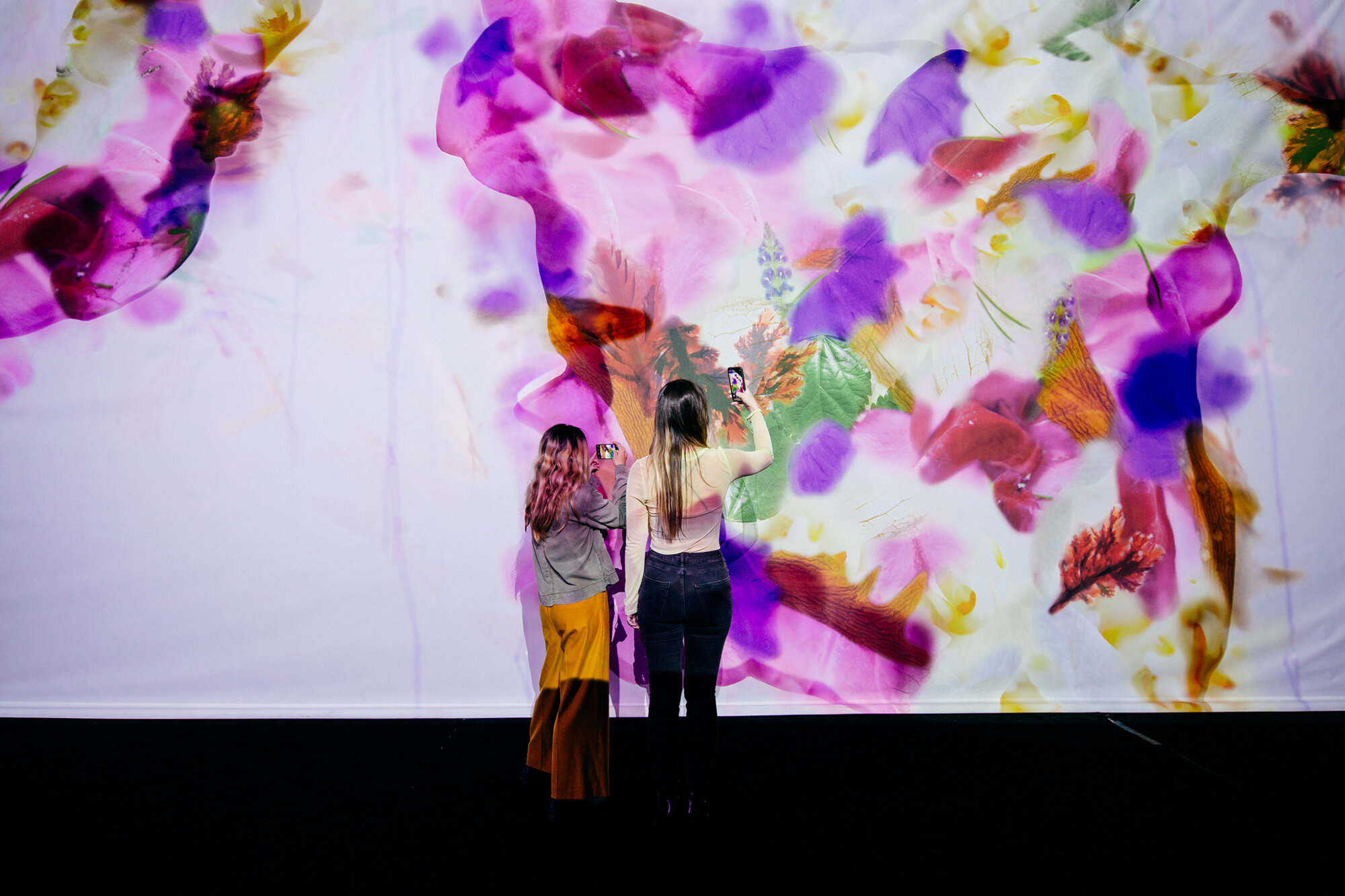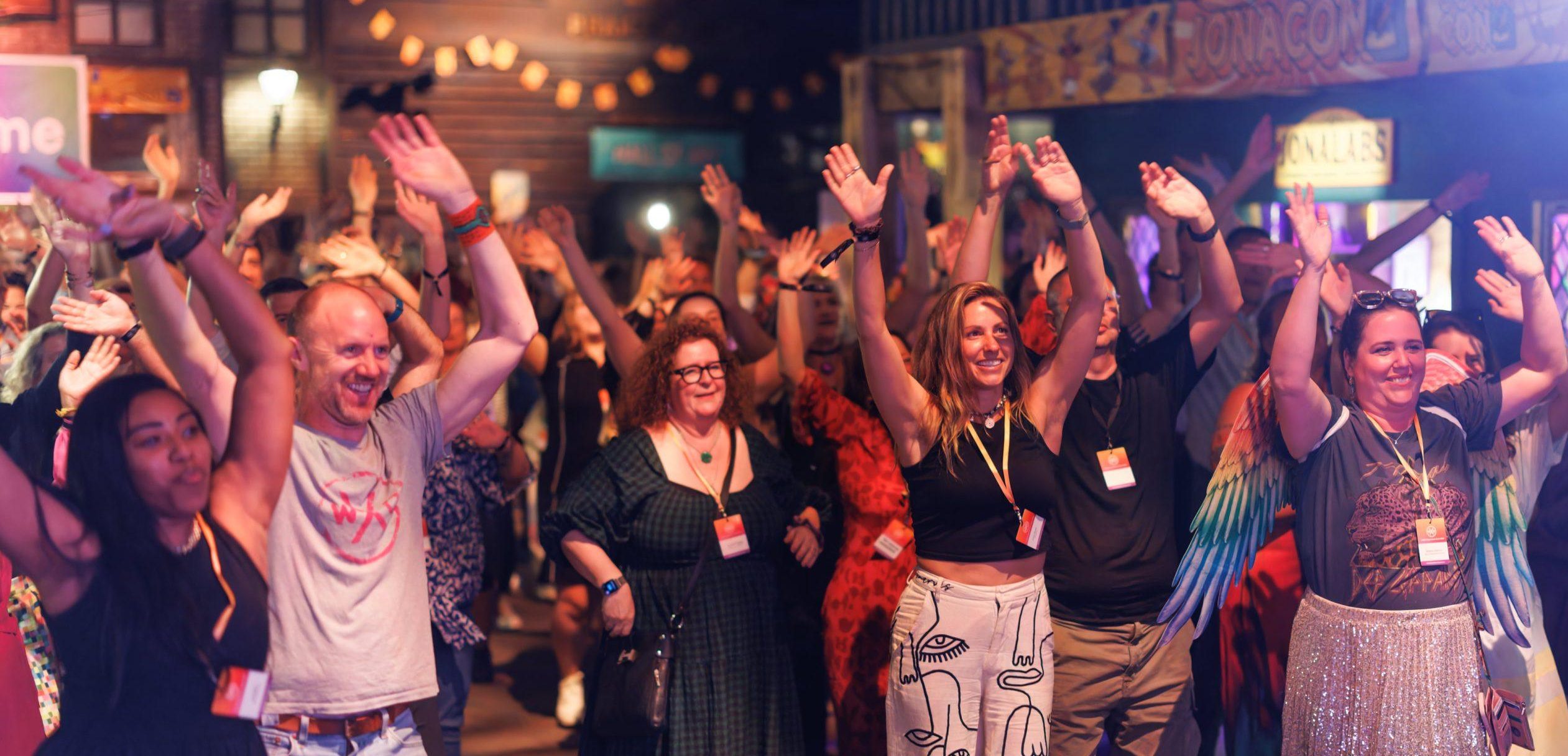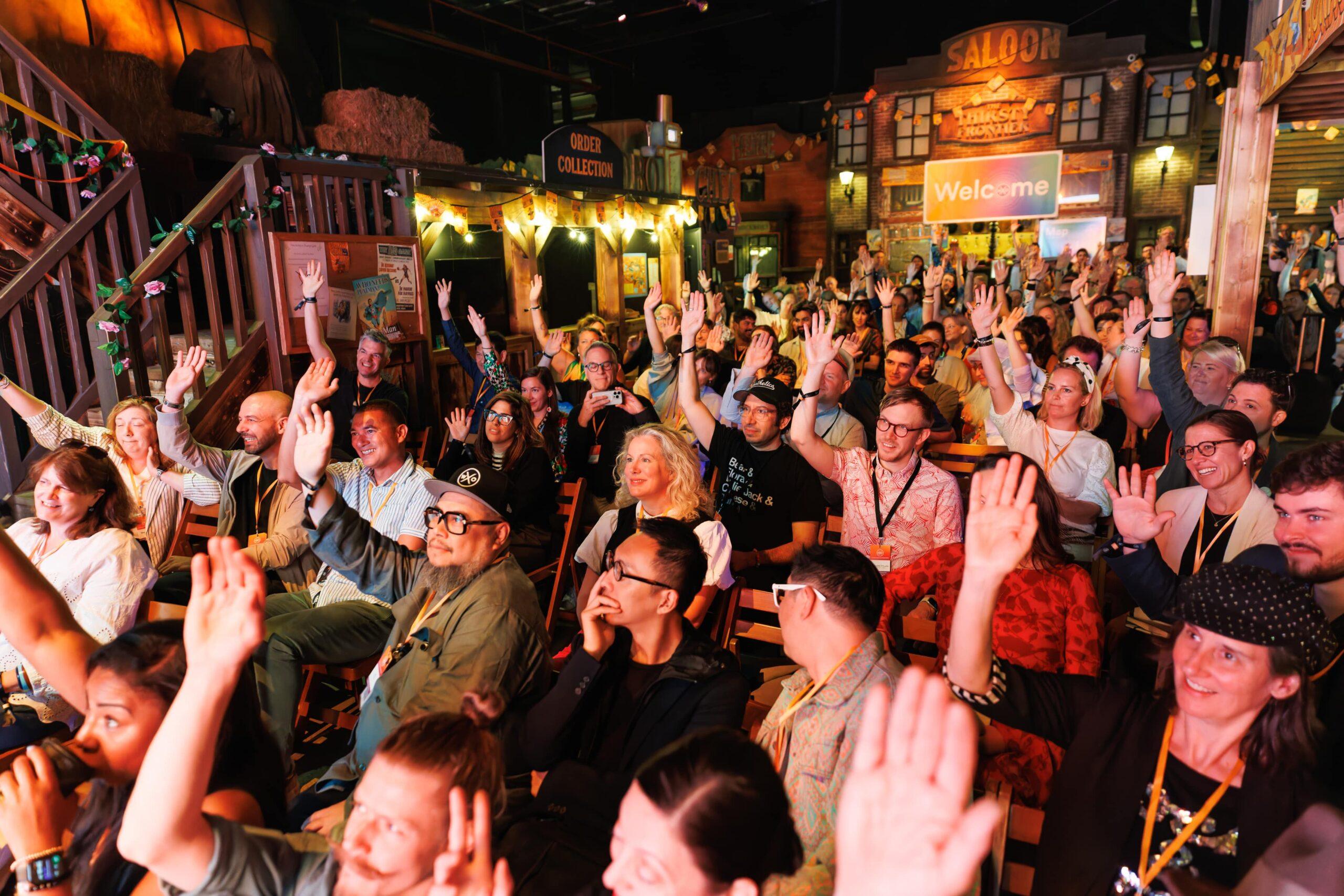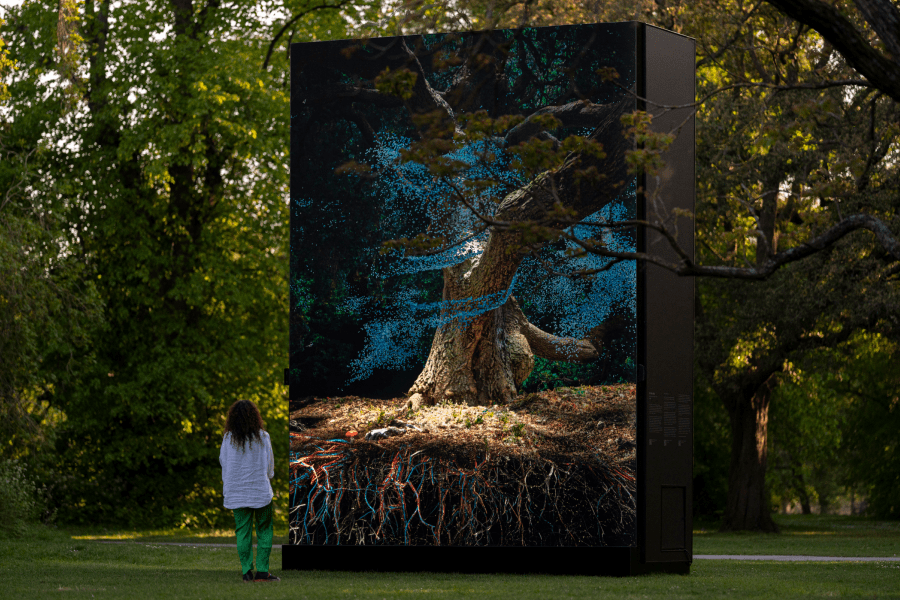This article is the first from the WXO WiX – Women In Experience – Working Group. It is co-written by three leaders of the Experience Economy: WXO Co-Founders Sheena Patel, founder of Yonder Beyond, and Nasya Kamrat, founder of spatial storytelling agency Faculty; and also by Kevi Louise Johnson, creative director at Faculty, and Founding Member of the WXO.
As members of the Founding Circle of the World Experience Organization, we’re all in on finding ways to improve, enhance and evolve the Experience Economy.
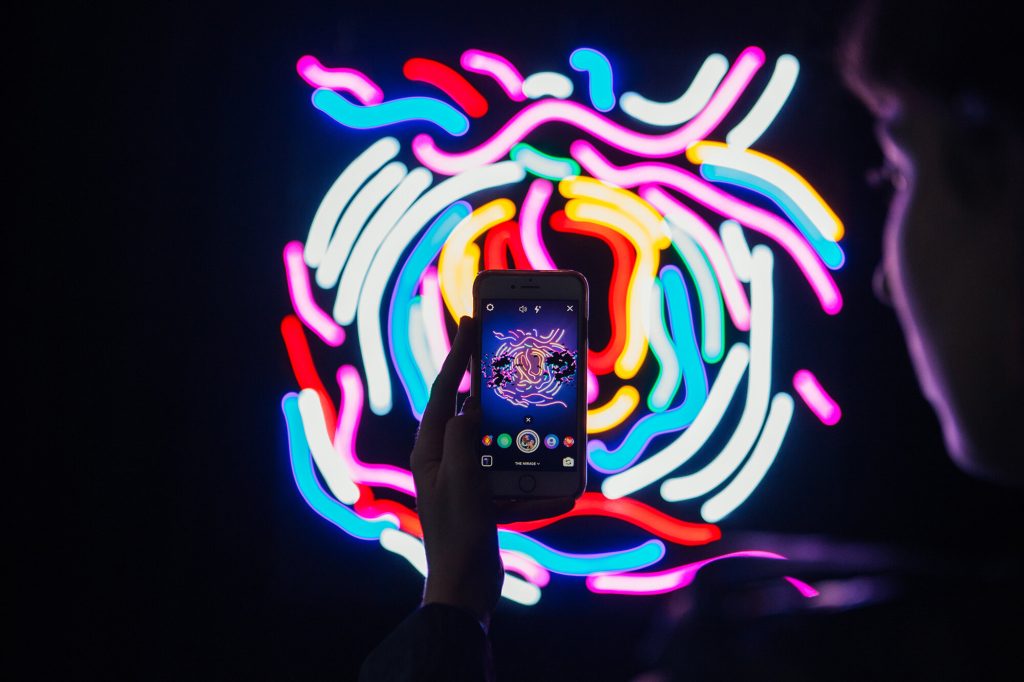
Today, as we celebrate International Women’s Day, there is an opportunity not only to champion the incredible women that contribute to the sector, but also to consider what more can be done to enable this cohort to flourish year round, both within the WXO and the wider world of experiences.
The WXO has grown at an outstanding pace, attraching experts from every walk of the Experience Economy since it soft-launched late 2020 and opened to members in July 2021. Best practices have been shared, global partnerships forged, and what once felt like a disparate community of creators, artists and thinkers, has now come together under a unifying mission.
The approach to what best served this community has been organic and iterative, evolving based on feedback from the cohort. One significant observation became apparent: even though women make up 34% of the Founding Members — as of March 8, 2022 — only a handful of the Campfire talks that spark the conversations and creativity at the WXO Campfires have been given by women. (But the talks they have given have been very good: for instance, Annette Mees’ talk on her work for the Royal Opera House, Alice Loy’s talk on how Meow Wolf got funding, Moniek Hover and Licia Calvi’s talk on using different story shapes, Aga Szostek’s talk on experiential metrics, and Stephanie Riggs’ talk on storytelling in the multiplex.) Furthermore, while men often volunteer to give the Firestarter talks, women often decline the opportunity when invited.
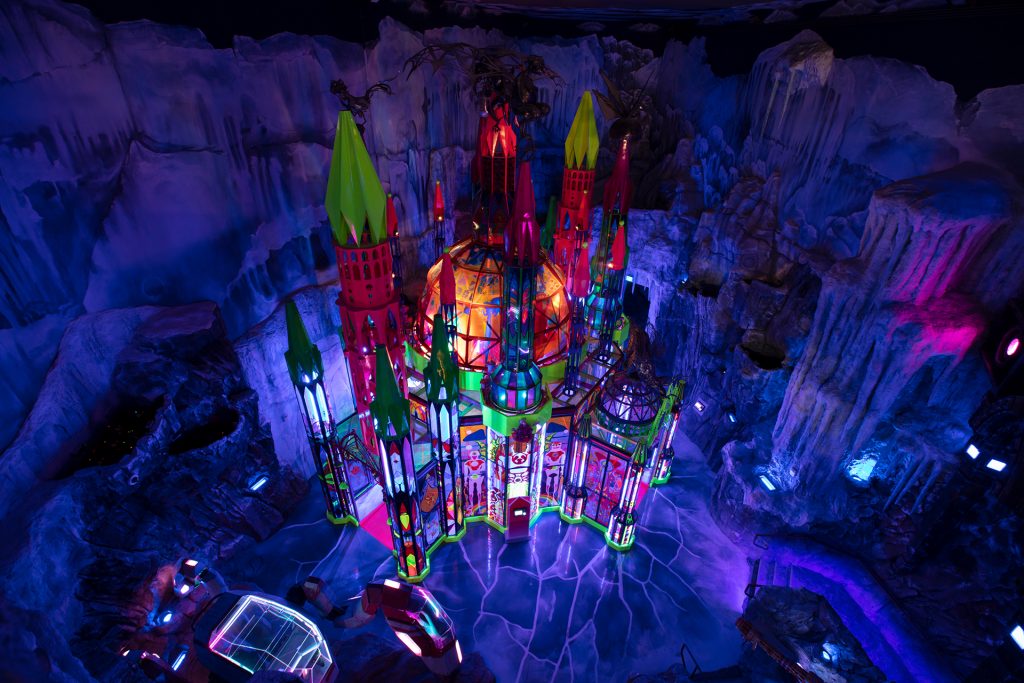
The WXO’s CEO, James Wallman, approached us to consider this issue, and together we’re asking a crucial question:
- How can the WXO better support women in the community?
- And how might we create a more relevant and inclusive environment for everyone in the Experience Economy?
So, we posed the first question to some of our peers, and discovered there isn’t a singular reason for lower participation from women that could quickly be addressed. Some of the examples we heard included:
- PERCEIVED EXPERTISE: A personal feeling of not being considered a ‘thought leader’. Different or unclear criteria on what benchmarks need to be met to be considered a thought leader. The experience of being sidelined from other speaking opportunities and subsequently, the inferred perception of women’s expertise.
- THE MODEL: A commonly felt disconnect with the theory, models and formula-led format of knowledge-sharing forums.
- TIME: Lack of time due to professional or personal commitments (multitasking business owner, primary caregiver, other responsibilities).
- EXTERNAL REASONS: Lack of societal or industry support on giving opportunities to women.
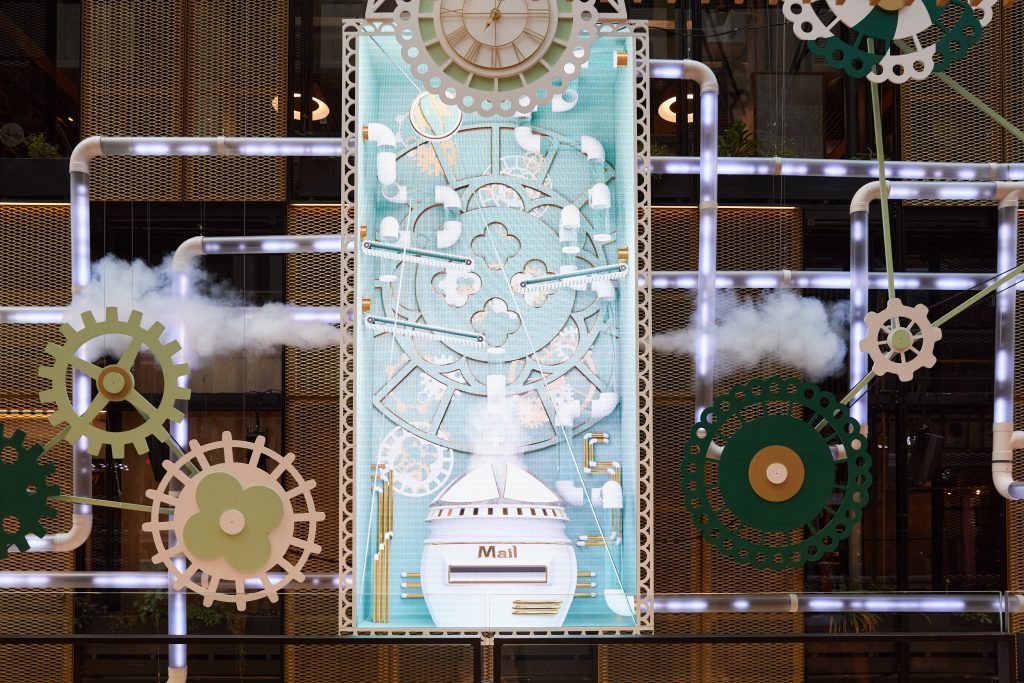
As we delved deeper, it became apparent that much of this feedback was underpinned by a common theme, pointing to how women have had to navigate the world of work to date and in many instances, how we see ourselves within that wider ecosystem.
As experience professionals, we have the unique opportunity to turn our focus inwards to transform and optimise underrepresented individuals’ experience of work and their sense of place within the larger community.
If we want to create effective experiences for society as a whole, all perspectives — mainstream, alternative and underrepresented — should be equitably facilitated from the outset as this new economy grows, not retrofitted after the fact. As such, there is a need to create clear, fast-track opportunities for all of us to comfortably, confidently and meaningfully contribute to the evolution of the Experience Economy in a way that meets our hierarchy of needs.
In order to begin addressing these findings, we will be hosting the WXO’s first Women in Experience meetup on April 21, 2022. It’s open to all women-identifying practitioners in our sector to discuss and co-create sustainable approaches to creating a better experience of work by first identifying and exploring:
- Current practices or constructs in the world of work that are not best serving women’s ability to contribute effectively to the Experience Economy
- Challenges or roadblocks to professional development and opportunities
- How we effectively ‘work’ and how those attributes can contribute to and inform the Experience Economy

We know there are many underrepresented communities that could benefit from an empathetic, professional cohort. We hope that this first experiment will help foster new approaches to optimising women’s experience of work, and then will enable an iterative approach to ensure the resulting format also serves the needs of other groups. We will be extending the invitation to form similar working groups in the second series.
The first meetup will begin to define our journey towards a more diverse and inclusive community. We believe that with our collective wealth of drive, experience, smarts and general badassery, we can create actionable solutions for a more equitable global experience ecosystem that supports women to join, build and lead the Experience Economy. By doing this, we’ll ensure that the experience ecosystem is more representative of the people who are having experiences. And we’ll be more likely to fulfill our mission: to create better experiences for everyone on planet Earth.
Who’s in?
If you’d like to be a part of the conversation on April 21, 2022, please express your interest here.

